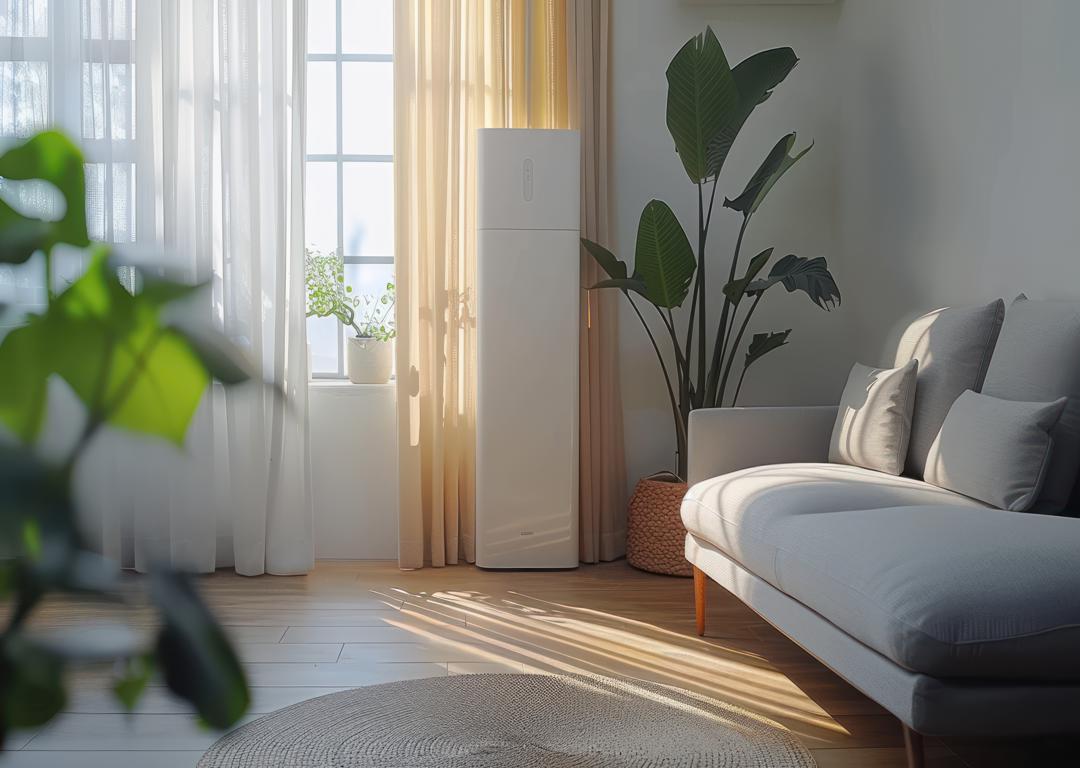Serving the Pikes Peak Region Since 1988
- Call Us For a Free Estimate!
Serving the Pikes Peak Region Since 1988

As the colder months approach, homeowners in regions like Colorado Springs spend more time indoors, relying heavily on their HVAC systems to keep warm. However, while winter brings the need for indoor comfort, it also introduces challenges to maintaining good indoor air quality (IAQ). The importance of IAQ cannot be overstated; it directly affects health, comfort, and overall well-being. Poor air quality can lead to respiratory issues, allergies, and a general sense of discomfort, particularly in well-sealed homes where ventilation is often minimized during winter.
This article explores the significance of indoor air quality, especially in the colder months, and offers practical tips to help improve it, ensuring your home remains not only warm but also healthy.
Indoor air quality refers to the cleanliness of the air inside your home, free from pollutants, allergens, and contaminants. According to the Environmental Protection Agency (EPA), indoor air can be two to five times more polluted than outdoor air, largely because modern homes are designed to be more energy-efficient and airtight. While these features help in reducing energy costs, they also limit the flow of fresh air, allowing pollutants to accumulate.
The consequences of poor indoor air quality are far-reaching, particularly during winter when homes are sealed tight to keep out the cold. Poor IAQ can lead to a range of health issues, including:
Maintaining high indoor air quality during winter is essential for your family’s health and comfort. Fortunately, there are several steps you can take to improve and maintain good IAQ throughout the season.
One of the simplest yet most effective ways to improve indoor air quality during winter is by regularly changing your HVAC system’s air filters. These filters are designed to capture dust, dirt, and other airborne particles before they circulate throughout your home. However, as filters become clogged with debris, they become less effective at trapping pollutants and can even restrict airflow, reducing the efficiency of your HVAC system.
During the winter months, when the HVAC system is used more frequently, it’s recommended to replace air filters every 30 to 60 days. Homes with pets or residents who suffer from allergies may need to change filters more often to prevent excessive dust and dander from circulating.
Consider upgrading to high-efficiency air filters, such as HEPA filters, which are designed to capture smaller particles, including mold spores, pollen, and pet dander. These filters improve IAQ by trapping finer contaminants that standard filters might miss.
During winter, it’s tempting to keep windows and doors tightly sealed to prevent heat loss. However, this lack of fresh air can lead to a buildup of indoor pollutants. Proper ventilation is crucial to maintaining good indoor air quality, as it helps to dilute and remove contaminants.
Air purifiers are highly effective at improving indoor air quality, especially during winter when indoor pollutants tend to accumulate. These devices work by pulling air through a series of filters, trapping pollutants such as dust, smoke, pollen, and VOCs before recirculating the cleaned air back into the room.
For the best results, consider placing air purifiers in high-traffic areas or rooms where you spend the most time, such as bedrooms and living rooms.
Maintaining proper humidity levels during winter is essential for both comfort and indoor air quality. In Colorado Springs, the air can become particularly dry during winter, leading to dry skin, irritated respiratory systems, and increased susceptibility to colds and flu. However, excessive humidity can also be a problem, as it creates the perfect environment for mold and dust mites to thrive.
The ideal indoor humidity level is between 30% and 50%. Humidity levels lower than 30% can cause dry, irritated airways, while levels higher than 50% can lead to mold growth and worsen asthma symptoms.
Another effective way to improve IAQ during winter is by reducing the number of pollutants entering your home. Common sources of indoor air pollution include household cleaners, paints, pet dander, and synthetic materials used in furniture and carpeting.
Finally, maintaining your HVAC system is crucial for ensuring good indoor air quality during the winter months. Dust, dirt, and other contaminants can build up in the ducts, vents, and heating components, reducing the efficiency of your system and circulating pollutants throughout your home.
By following these tips, you can significantly improve indoor air quality during the winter months, making your home a healthier, more comfortable place to live. Taking proactive steps to reduce pollutants, maintain proper humidity levels, and ensure good ventilation will protect your family’s health and enhance overall well-being.
Contact Absolute Comfort, Inc. today to schedule HVAC maintenance and learn more about how we can help improve your home’s indoor air quality this winter.